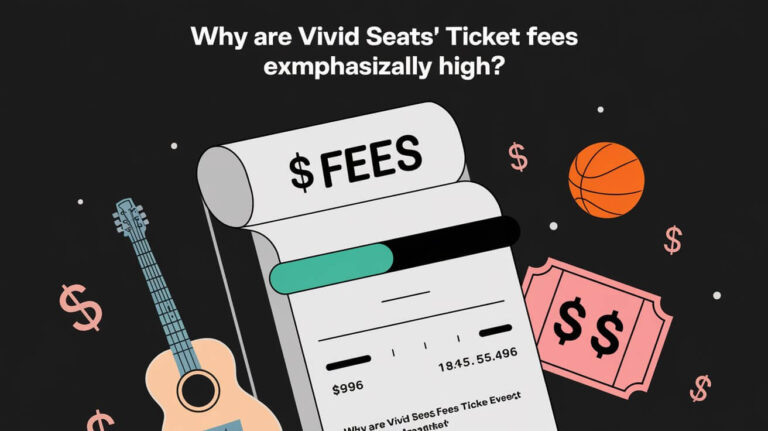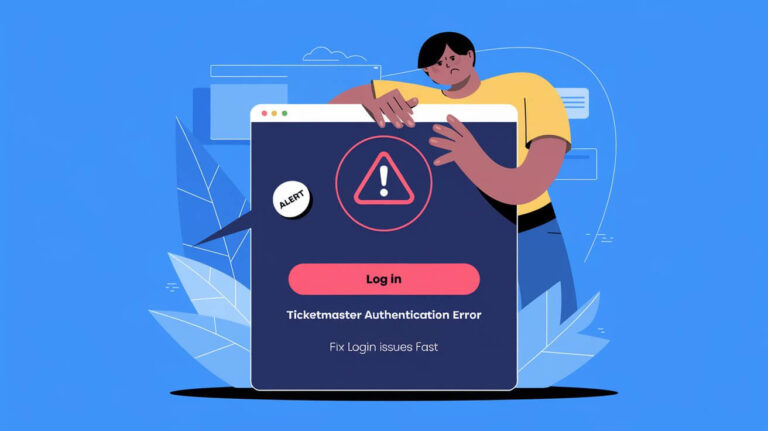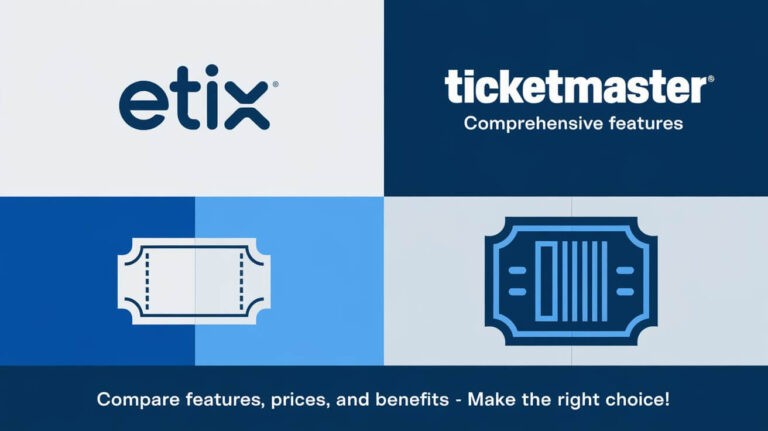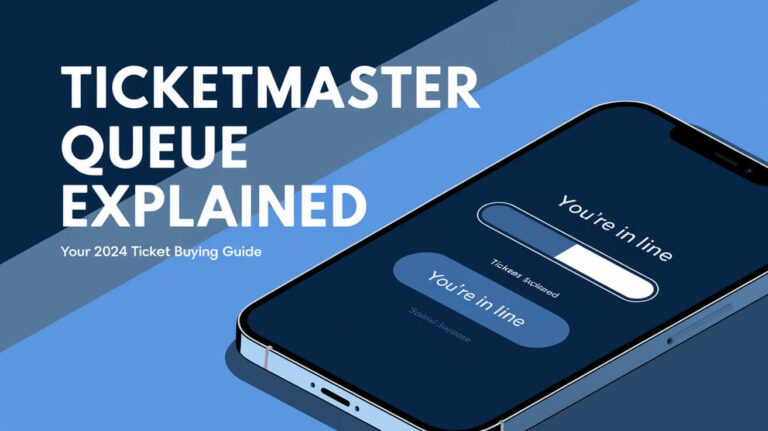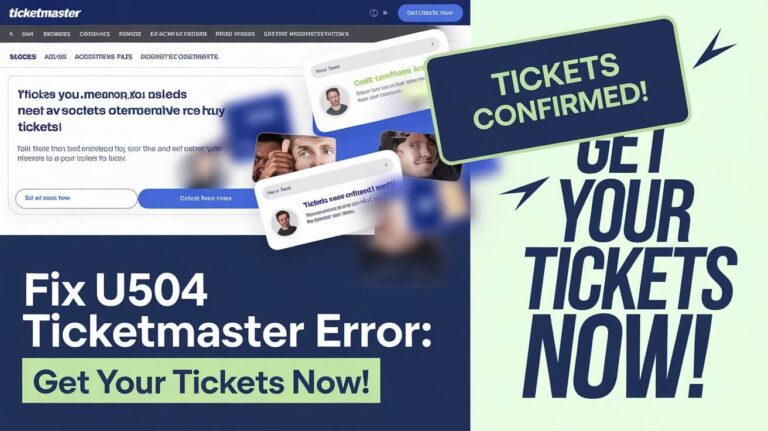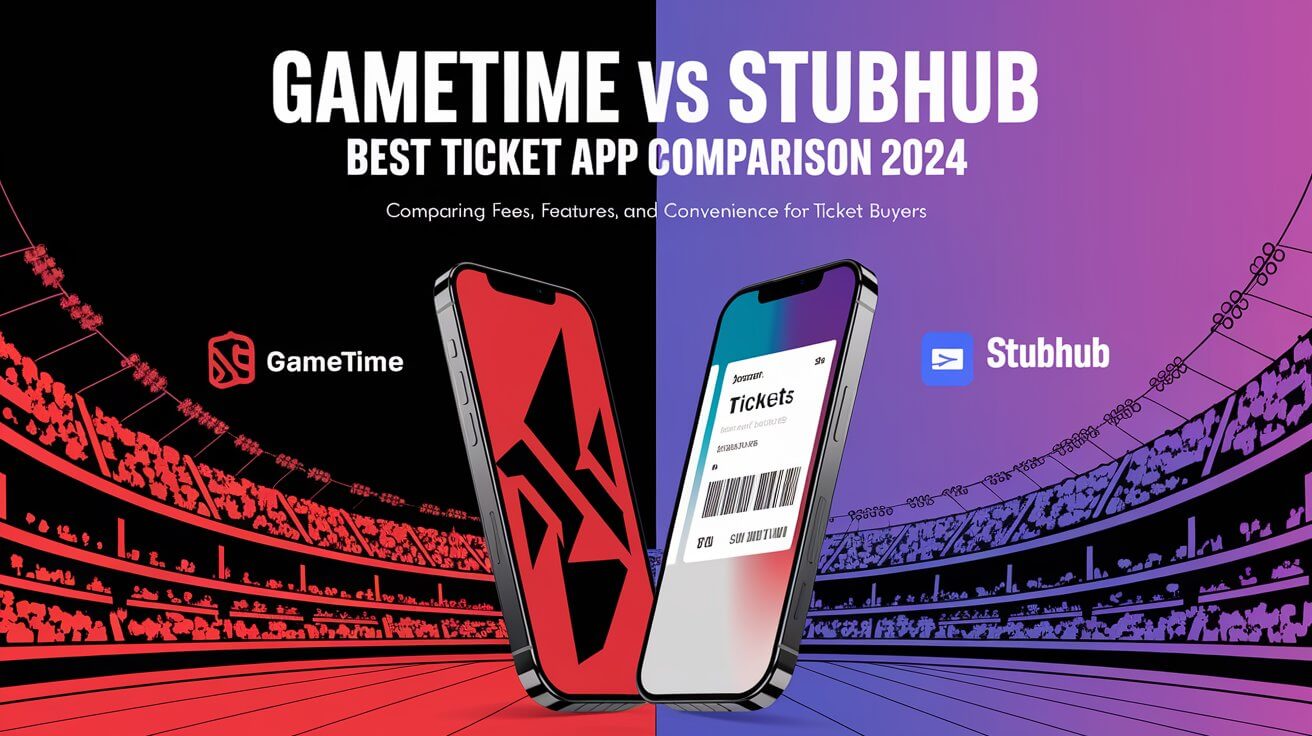
In the world of event ticket buying, Gametime and StubHub are top choices. They offer different features to meet today’s ticket buyers’ needs. StubHub has a wide Gametime Vs Stubhub: Compare Ticket Marketplaces
In the dynamic world of sports, concerts, and live events, secondary ticket marketplaces are essential. Gametime and StubHub stand out as leaders, each with unique features and strategies. For ticket resellers and fans, grasping the differences between these platforms is key.
Gametime shines with its mobile-first approach and focus on last-minute ticket sales. It’s known for low fees, carefully selected listings, and a user-friendly buying process. This makes it a go-to for those looking for efficient and affordable ticket options. On the other hand, StubHub, a veteran in the field, boasts a broader selection of tickets but charges higher service fees. This presents a contrasting experience in the secondary ticket market.
Secondary Ticket Marketplaces
The landscape of event tickets has dramatically shifted, moving from traditional ticket brokers to the emergence of online ticket sales. Secondary ticket marketplaces, like StubHub and Gametime, have been instrumental in this shift. They’ve transformed ticket buying and selling, creating a digital space for resale and dynamic pricing.
Evolution of Online Ticket Sales
The secondary ticket market has evolved significantly from the days of traditional scalping. StubHub, established in 2000, was a pioneer in this field, offering a platform for ticket resale. Gametime, launched in 2012, focused on mobile ticketing and last-minute deals, further expanding the market.
Market Leaders and Their History
Today, the digital ticketing scene is led by a few major players. Ticketmaster, a dominant force, serves about two-thirds of U.S. demand. Resale platforms like StubHub, SeatGeek, and Vivid Seats have found their place in the secondary ticket market.
Current State of Digital Ticketing
The digital ticketing landscape today features mobile apps, instant ticket transfers, and dynamic pricing. Resale platforms provide guarantees to safeguard buyers from scams and fake tickets. They also allow sellers to adjust prices according to demand. Prices in the secondary market can fluctuate greatly, sometimes offering fantastic deals for last-minute buyers.
Gametime Vs Stubhub: Key Platform Differences
In the competitive world of ticket marketplaces, Gametime and StubHub lead as industry giants. Each caters to different user needs. Gametime focuses on a mobile-first experience with curated listings and last-minute deals. On the other hand, StubHub boasts a larger inventory but with a more complex interface.
Gametime’s All-In Pricing strategy is a standout feature. It clearly shows the total cost upfront, including any fees. In contrast, StubHub adds fees during checkout, potentially making pricing less transparent. Gametime also allows purchases up to 90 minutes after an event’s start, a unique feature in the ticket marketplace comparison landscape.
| Feature | Gametime | StubHub |
|---|---|---|
| User Interface | Streamlined, mobile-focused | Larger inventory, more complex |
| Pricing Structure | All-In Pricing with transparent fees | Adds fees during checkout |
| Last-Minute Purchases | Allows purchases up to 90 minutes after event start | Standard industry practice |
These differences show how Gametime and StubHub meet different user needs in the mobile ticketing apps market. They offer unique experiences and value to their respective customers.
Pricing Structure and Fee Comparison
Gametime and StubHub have different ways of handling ticket prices and fees. Gametime is famous for its All-In Pricing, showing the final ticket cost upfront. This includes any service fees that apply. On the other hand, StubHub’s pricing can be more complex. Hidden costs are often revealed only when you’re about to check out.
Service Fee Breakdown
Gametime’s service fees are among the lowest in the market. The platform aims to offer the most affordable ticket options. In contrast, StubHub’s service fees can go up to 25% of the ticket price. This can significantly increase the total cost for buyers.
Hidden Costs Analysis
StubHub’s hidden costs can lead to unexpected expenses for customers. Gametime’s All-In Pricing, on the other hand, helps users stay within their budget. The final price is shown upfront, without any surprise fees.
All-In Pricing vs. Traditional Pricing
Gametime’s commitment to transparent All-In Pricing makes it stand out from competitors like StubHub. This approach lets users make informed choices. It also helps avoid surprises during checkout, improving the ticket buying experience.
Mobile App Experience and User Interface
The user experience and interface of mobile ticketing apps are crucial. They determine how easily fans can get their tickets. Gametime and StubHub, major names in the secondary ticket market, have different approaches to their app design.
Gametime focuses on speed and simplicity. It’s perfect for those who need tickets at the last minute. The app lets users buy tickets in just two taps. Its design makes it easy to find and buy tickets, delivering them straight to your phone.
On the other hand, the StubHub app offers more features and customization options. It has a wider range of tickets. But, it can be overwhelming for those looking for a quick, easy ticket-buying experience.
Gametime’s focus on simplicity and speed is great for last-minute buyers. It’s designed to be user-friendly, appealing to a wide range of users. Whether you’re into sports, music, theater, or spontaneous travel, Gametime has you covered.
Seat Selection and Virtual View Technology
Choosing the right seats for an event is crucial, and virtual seat views and stadium mapping are key. Gametime and StubHub each offer unique ways to help customers understand what to expect. They provide detailed insights into the event experience.
Panoramic Seat Views
Gametime offers panoramic photos taken by fans, showing real event views. This gives a true feel of the atmosphere and experience. In contrast, StubHub uses digital recreations of empty venues. These may be clearer but don’t show the actual event conditions.
Stadium Mapping Features
Both platforms have stadium mapping features. These allow users to explore the venue layout and see available seats. Gametime has detailed mapping tools for zooming in and out. StubHub has interactive seat maps with pricing tiers shown in color.
Photo Quality Comparison
Gametime’s panoramic photos capture the event’s true atmosphere. They show the crowd, performers, and ambiance in high-quality images. StubHub uses digital recreations that may not be as realistic but offer clearer visuals of the venue.
| Feature | Gametime | StubHub |
|---|---|---|
| Seat Views | Actual panoramic photos taken by fans | Digital recreations of empty venues |
| Stadium Mapping | Detailed mapping tools with zoom functionality | Interactive seat maps with color-coded pricing tiers |
| Photo Quality | High-quality images capturing the event’s atmosphere | Clearer visuals but may lack the same level of realism |
Last-Minute Buying Options
In the fast-paced world of ticket sales, the last-minute buying experience can be crucial. While some events see prices increase as the date nears, others offer flexibility for spontaneous outings. Grasping the subtleties of last-minute purchases can lead savvy consumers to the best deals and secure their seats.
Gametime, a leading ticket marketplace, excels in last-minute options. Their LastCall feature allows buyers to purchase tickets up to 90 minutes after the event starts. This feature takes advantage of dynamic pricing adjustments as the event approaches. It’s highly beneficial for sporting events, where factors like matchups and game days impact pricing.
On the other hand, StubHub, another major player in the secondary ticket market, does not offer post-start purchases. This limits options for truly last-minute buyers. Yet, both platforms use dynamic pricing models. They continuously adjust ticket costs based on supply and demand.
- Concert tickets for exclusive tours with limited dates may see increasing prices as the event approaches, discouraging last-minute purchases.
- Sporting events generally offer more flexibility for last-minute ticket purchases, with games occurring regularly and often having different pricing dynamics based on factors like matchups and game days.
- MLB tickets typically see higher prices for the first game of each series, while NBA tickets for weekend games are generally pricier compared to mid-week games.
- Concert tickets usually experience higher demand due to limited show dates per city, making early purchases potentially more favorable.
The choice to buy last-minute tickets or take advantage of dynamic pricing hinges on the event, platform, and buyer’s preferences. By understanding the ticket marketplace’s nuances, consumers can make informed decisions. They can find the best deals, whether planning ahead or seeking a spontaneous outing.
Ticket Transfer and Sharing Capabilities
Gametime and StubHub offer digital solutions for ticket transfers and sharing. Gametime’s mobile-first approach makes sharing tickets easy, allowing users to transfer them via text or email from the app. This highlights Gametime’s focus on a hassle-free, last-minute ticket buying experience.
StubHub also provides ticket transfer options, though the process is not as streamlined as Gametime’s. This reflects Gametime’s commitment to delivering a seamless experience, where quick ticket sharing is crucial.
Digital Transfer Methods
Both Gametime and StubHub enable digital ticket transfer, making it simple to share tickets. Gametime’s mobile-centric platform makes the process straightforward, allowing users to transfer tickets via text or email. This feature is tailored for users who frequently need to transfer tickets at the last minute.
Group Buying Features
Gametime and StubHub have different approaches to group ticket purchases. Gametime’s features are designed for easy ticket sharing and coordination among friends or colleagues. Users can purchase and manage group tickets seamlessly, ensuring a hassle-free experience for group outings.
StubHub also offers group buying options, though the process is not as streamlined as Gametime’s. Both platforms provide the necessary tools for coordinating and securing tickets for group outings.
Buyer Protection and Guarantees
When buying tickets through secondary marketplaces, buyer protection and guarantees are key. Both Gametime and StubHub understand the need for a secure and reliable experience. They aim to provide peace of mind to their customers.
Gametime Guarantee stands out at Gametime. It ensures valid tickets are delivered on time. This guarantee also includes a Price Guarantee. If lower prices are found elsewhere, Gametime offers 110% of the difference in credit.
StubHub, the world’s largest ticket marketplace, offers the FanProtect Guarantee. It guarantees authentic and valid tickets for entry. In case of event cancellations, StubHub provides a full refund, including fees.
Both platforms focus on buyer security. Gametime’s price matching feature adds value for those seeking the best deals. With their guarantees, Gametime and StubHub aim to give users confidence in their ticket purchases.
Platform Performance and Reliability
Both Gametime and StubHub excel in platform performance and reliability. Gametime, founded in 2013, has quickly become a favorite in the secondary ticket market. It’s known for its customer support, technical reliability, and transaction security.
Customer Support Comparison
Gametime offers US-based customer support through email, chat, and phone. It’s praised for its user experience and mobile fan experience. On the other hand, StubHub, being larger, might have more extensive support. Yet, it can sometimes feel less personal.
Technical Reliability
Gametime’s mobile-first design offers speed and convenience for digital ticketing. Its purchase process is quick, taking just two taps and ten seconds. The platform also has a Price Guarantee, adding 110% of the price difference to your account if a lower price is found elsewhere.
Transaction Security
Both Gametime and StubHub focus on transaction security. Gametime provides comprehensive buyer protections. This includes a Lowest Price Guarantee, Event Cancellation Protection, 24-Hour Returns Guarantee, Job Loss Assurance, and On-Time Ticket Delivery. Gametime is seen as a legitimate ticket reseller, offering a stress-free experience for mobile-savvy fans.
Questions & Answers
What are the key differences between Gametime and StubHub?
Gametime excels in mobile-first, last-minute ticket sales with low fees and curated listings. In contrast, StubHub offers a broader selection but with higher fees. The platforms differ in pricing transparency, last-minute buying options, and user interface.
How have secondary ticket marketplaces evolved over time?
Secondary ticket marketplaces have evolved from traditional scalping to digital platforms. StubHub, founded in 2000, was an early leader. Gametime, launched in 2012, focused on mobile ticketing. Today, digital ticketing involves mobile apps, instant transfers, and dynamic pricing.
What are the unique features of the Gametime and StubHub platforms?
Gametime offers a streamlined, mobile-first experience with curated listings and last-minute deals. StubHub, on the other hand, provides a larger inventory but with a more complex interface. Gametime’s All-In Pricing shows total costs upfront, allowing purchases up to 90 minutes after the event starts.
How do the pricing structures and service fees compare between Gametime and StubHub?
Gametime has lower fees, typically among the lowest in the industry, with transparent All-In Pricing. StubHub’s fees can reach up to 25% of the ticket price, added during checkout. Gametime’s approach helps users stay within budget more easily, while StubHub’s pricing can lead to unexpected total costs.
How do the mobile app experiences differ between Gametime and StubHub?
Gametime’s app is designed for fast, two-tap purchases and seamless ticket delivery to phones, with easy ticket sharing via text. StubHub’s app provides more options but can be overwhelming. Gametime focuses on simplicity and speed, beneficial for last-minute purchases.
How do the seat selection and virtual view technologies compare?
Gametime provides actual panoramic photos taken by fans, showing real event views with crowds and performers. StubHub offers digital recreations of empty venues. Gametime’s approach gives a more realistic preview of the experience, while StubHub’s may be clearer but less representative of actual event conditions.
What are the differences in last-minute buying options?
Gametime specializes in last-minute sales, offering LastCall feature for purchases up to 90 minutes after event start, and uses dynamic pricing to adjust ticket costs as the event approaches. StubHub doesn’t offer post-start purchases and lacks automatic price adjustments for last-minute deals.
How do the ticket transfer and sharing capabilities compare?
Both platforms offer digital ticket transfers. Gametime allows easy sharing via text or email directly from the app, while StubHub also provides transfer options but may be less streamlined. Gametime’s focus on mobile transfers aligns with its last-minute buying model.
What buyer protection and guarantees do the platforms offer?
Gametime offers a Gametime Guarantee, ensuring valid tickets delivered on time, and a Price Guarantee, offering 110% of the price difference in credit if lower prices are found elsewhere. StubHub has its own FanProtect Guarantee, promising valid tickets or replacements. Both platforms prioritize buyer security, but Gametime’s additional price matching adds extra value.
How do the platforms compare in terms of performance and reliability?
Gametime provides US-based customer support via email, chat, and phone, and has received recognition for user experience and mobile fan experience. StubHub, being larger, may have more extensive support but can be less personal. Both platforms prioritize transaction security, but Gametime’s mobile-first approach may offer advantages in speed and convenience for digital ticketing.

